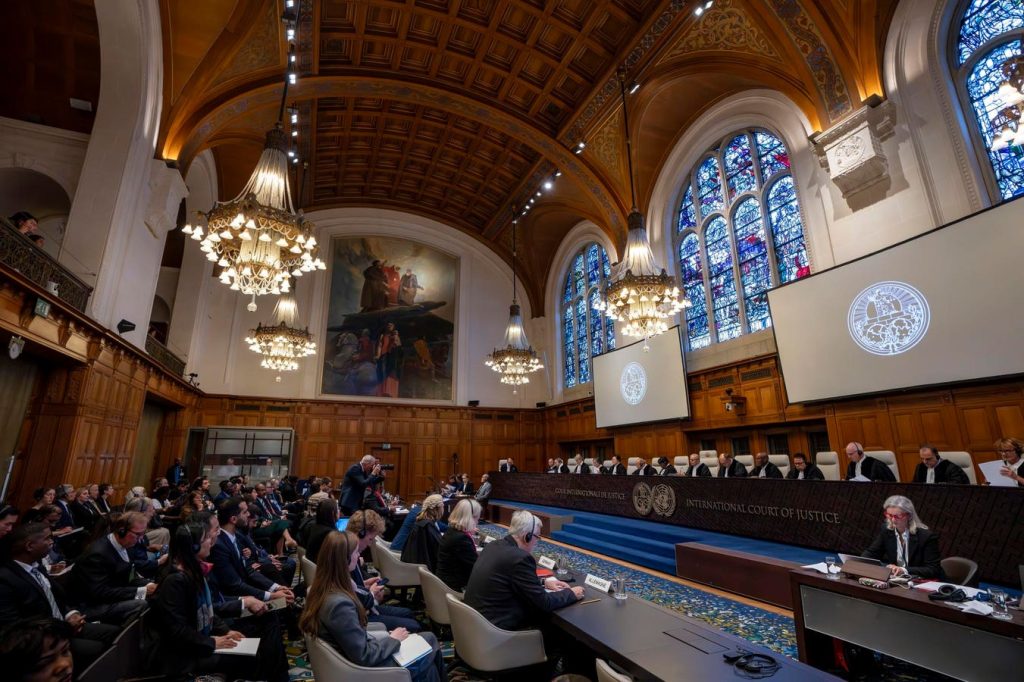The International Court of Justice (ICJ), also known as the World Court, recently held public hearings concerning the obligations of states regarding climate change. Initiated by a request from the UN General Assembly, spurred by the island nation of Vanuatu, the ICJ’s advisory opinion will address the financial liabilities of countries contributing to climate change and the necessary preventative actions. While the opinion lacks binding power, it holds significant weight, potentially influencing future climate litigation and shaping legislative efforts. The central debate revolves around the legal obligations stemming from the Paris Agreement, specifically whether it mandates concrete action or merely procedural steps.
The core of the legal arguments presented before the ICJ rests upon the interpretation of the United Nations Framework Convention on Climate Change (UNFCCC) and the subsequent Paris Agreement. Developed nations, including the United States, Australia, and Germany, advocate for the principle of lex specialis, arguing that the specific provisions of these climate treaties supersede any other international law on the subject. This interpretation limits obligations to those explicitly negotiated within the agreements, precluding any additional requirements for reparations or actions beyond the treaty’s scope. They contend that the Paris Agreement, while promoting ambition, primarily outlines procedural obligations for nations to set and report on their Nationally Determined Contributions (NDCs) for emissions reductions.
Conversely, developing countries, particularly those most vulnerable to climate change impacts, argue that the UNFCCC and the Paris Agreement represent a starting point, not the entirety of climate obligations. They assert that climate change’s adverse effects infringe upon fundamental human rights, as outlined in international common law and the Universal Declaration of Human Rights. Consequently, they advocate for reparations from high-emitting nations, holding them accountable for the consequences of their actions, particularly for the disproportionate burden borne by low-lying and developing nations. They maintain that a substantive interpretation of the Paris Agreement is necessary to align with the treaty’s overarching goal of limiting global warming and protecting vulnerable populations.
The crux of the legal debate hinges on the interpretation of Article 4 of the Paris Agreement, which outlines the process for nations to establish and implement NDCs. Developed countries emphasize the procedural nature of these obligations, arguing that countries are primarily required to formulate and communicate their intended contributions, with flexibility in implementation. This interpretation, they argue, allows for national autonomy in addressing climate change while respecting differing capabilities and circumstances.
However, developing nations and proponents of stronger climate action contend that Article 4 entails substantive obligations, requiring countries to actively pursue the emission reduction targets outlined in their NDCs. They emphasize the "progression" clause of Article 4, paragraph 3, which calls for successively ambitious NDCs, reflecting each nation’s "highest possible ambition." This, they argue, implies a legal duty to not only set targets but also to implement measures to achieve them. A substantive interpretation, they believe, holds countries accountable for their contributions to climate change and ensures meaningful progress towards the agreement’s objectives.
The potential ramifications of the ICJ’s advisory opinion are significant, particularly for the United States. The U.S. joined the Paris Agreement under an executive order, bypassing Senate ratification, on the premise that the agreement did not create legally binding obligations. If the ICJ were to determine that the Paris Agreement does impose substantive requirements, it could potentially challenge the legality of the U.S.’s participation under its domestic law. This could reopen the debate within the U.S. regarding its commitment to the Paris Agreement and its broader climate policy.
Following the conclusion of the oral hearings, several judges posed clarifying questions to the participating parties, focusing on the nature of obligations under Article 4 of the Paris Agreement. Responses from various countries highlighted the divergent interpretations of the agreement, with some emphasizing the procedural aspects while others advocating for a more substantive reading. The responses ranged from asserting the agreement primarily outlines good-faith efforts without strict results-based requirements to arguing that the agreement necessitates concrete actions to achieve the stated goals. This divergence in interpretation underscores the complex legal and political landscape surrounding climate change responsibility and the importance of the ICJ’s forthcoming advisory opinion.

